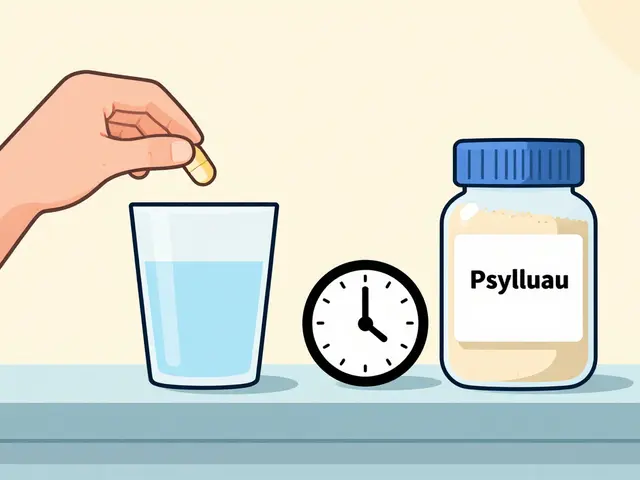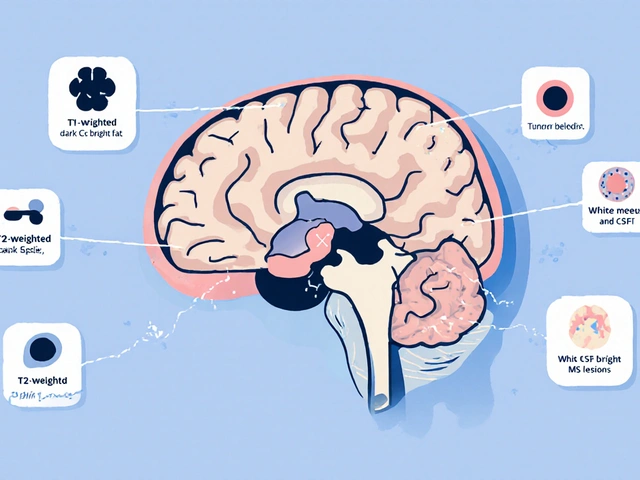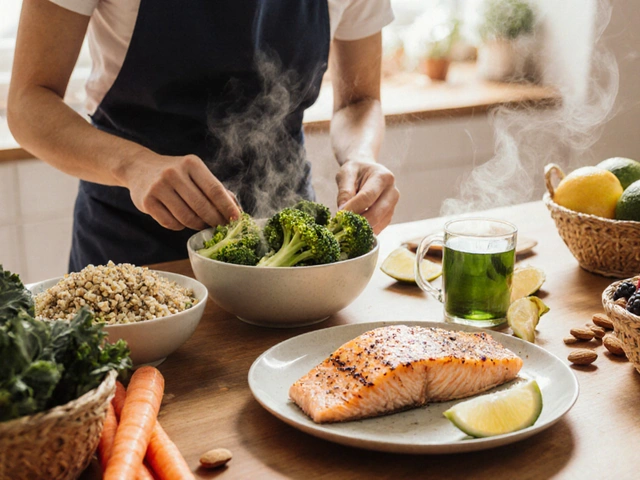Chest pain can hit you out of nowhere—maybe after a big meal, a bad cough, or a really stressful day. It's natural to worry, but not every chest twinge means a heart attack is lurking. If your pain is mild, comes and goes, or feels more like discomfort than a sharp stab, there are a lot of trusted home remedies you can try. But if you're experiencing shortness of breath, sweating, nausea, or crushing pain, don't mess around—get medical help fast. These tips are for people dealing with mild to moderate chest discomfort that already seems benign. Here's what actually works at home, according to doctors and recent studies.
Quick Answers: Top Remedies for Chest Pain Relief
- Chest pain sometimes responds well to home remedies like rest, hydration, and breathing exercises.
- Natural treatments such as ginger, warm compresses, and gentle stretches are safe for mild discomfort.
- Avoid spicy or heavy meals and limit caffeine to keep indigestion-related pain in check.
- If chest pain is sudden, severe, or paired with other symptoms, call emergency services immediately.
- Always double-check with your healthcare provider if you’re unsure why you’re having pain or if remedies don’t help.
Simple Steps for Relieving Chest Pain at Home
Dealing with chest pain at home? Start with the basics most doctors recommend for non-emergency situations. Here are ten time-tested steps you can try, plus the science behind why they might help.
- Rest and relax: Lying down with your back and neck supported can ease the strain on your chest muscles. Sometimes, just slowing down your day helps muscles—and your mind—relax.
- Deep breathing: Slow, controlled breaths send more oxygen to your muscles and help settle anxiety. Try inhaling for 4 seconds, holding for 2, and exhaling for 6. Researchers at the Cleveland Clinic found deep breathing can lower heart rate and tension fast.
- Warm compress: Apply a warm (not hot) pack to your chest for 10–15 minutes. This boosts blood flow and soothes stiff muscles. Skip this if you’re dealing with swelling or injury.
- Ginger tea: Ginger has anti-inflammatory properties. A 2023 study in "Phytotherapy Research" noted that ginger can help reduce discomfort tied to digestion and mild inflammation. Steep a few slices in hot water and sip slowly.
- Stay hydrated: Dehydration can worsen muscle cramps, including in the chest wall. Aim for at least 1.5–2 liters of water daily unless your doctor told you otherwise.
- Gentle stretching: Roll your shoulders back, open up your chest, and move your arms gently in circles. This helps if your pain is from sitting hunched at a desk all day.
- Chew antacids: When heartburn or indigestion is the culprit, over-the-counter antacids stop acid from irritating your esophagus. Choose chewable varieties for faster relief.
- Watch your trigger foods: Greasy, spicy, or super-acidic foods can trigger pain, especially at night. Try lighter meals and eat at least two hours before bed.
- Practice good posture: Slumping on the couch can squeeze your chest muscles and make things worse. Sit up straight, shoulders relaxed—not up by your ears.
- Mindful distraction: Sometimes, pain feeds on your anxiety. Try a short meditation, listen to music, or call a friend to take your mind off things if you suspect tension is making pain worse.
How These Home Remedies Compare
Not all chest pain is the same, and not all remedies are equally helpful, depending on what's causing your pain. Check out this comparison to help choose the right step:
| Remedy | When to Use | Cautions |
|---|---|---|
| Rest and Relaxation | Muscle soreness, stress | Avoid lying flat if trouble breathing |
| Deep Breathing | Anxiety, mild pain | Stop if dizziness or worsening pain |
| Warm Compress | Muscle aches | Don't use on injured/swollen areas |
| Ginger Tea | Heartburn, indigestion | Check for allergies |
| Hydration | General wellness | Don't overhydrate if on fluid restriction |
| Gentle Stretching | Stiffness, poor posture | Avoid if sharp pain present |
| Antacids | Indigestion, acid reflux | Don’t overuse; talk to doctor for regular need |
| Trigger Food Control | Known food intolerance | See a dietitian for severe or ongoing symptoms |
| Good Posture | Muscle strain, desk work fatigue | None |
| Mindful Distraction | Anxiety-driven pain | Seek medical attention if unsure of cause |

Checklist: When Is Chest Pain an Emergency?
It's tempting to self-treat, but some signs mean you should drop everything and call emergency services. Here’s a quick checklist—don’t try home remedies if you check any of these boxes:
- Pain feels crushing, heavy, or like “an elephant on your chest”
- Pain spreads to your arm, neck, jaw, or back
- You’re sweating, dizzy, or nauseous
- You find it hard to breathe or talk
- Pain started suddenly during activity or after injury
- You have known heart/lung conditions and pain feels new or much worse
Mini-FAQ: Your Most Pressing Chest Pain Questions
- How long should I try home remedies before calling a doctor?—If pain lasts longer than a day or gets worse, check in with your healthcare provider.
- Can stress really cause chest pain?—Yes, stress and anxiety can tighten your chest muscles and even trigger heartburn. Relaxation techniques do help for many people.
- Is there any food or drink I should avoid right away?—Skip fatty, spicy, and acidic foods like pizza, hot wings, and soda until you figure out what’s triggering your pain.
- Do these tips help with costochondritis?—Yes—rest, heat, and gentle movement can ease pain from chest wall inflammation, but let your doctor know if pain sticks around.
- Can kids use these remedies?—Most are safe, but kids should only use them after a pediatrician rules out anything serious, since chest pain in young people is rare but can be serious.
Next Steps Based on Your Situation
- After a huge meal?—Try ginger tea, walk around gently, and skip tight clothes or lying flat for a while.
- Desk jockey with a stiff chest?—Do light stretches, sit up straight, and try a warm compress at the end of the workday.
- Stressed or anxious?—Focus on deep breaths, relaxation, or a distracting hobby. Notice if the pain fades as your stress drops.
- Still unsure or worried?—It’s always okay to check with your doctor, especially for new or persistent pain. Trust your gut!







Deep breathing really cuts through that stress-tied chest tightness faster than most people expect.
When you slow the inhale and make the exhale longer you drop your heart rate and calm the nervous system, and that alone can make dull pressure feel miles better.
Pair that with sitting upright and loosening any tight clothing and the combo often beats panic and muscle strain both.
Also worth noting that if pain is sharp, migrating, or paired with sweating then these tricks are irrelevant and you should get seen immediately.
For people who live at a desk all day, short breathing breaks and two shoulder rolls every hour stop the buildup that turns into a harsh ache by evening.
Don't sleep flat right after a heavy meal either, gravity helps digestion and keeps reflux from creeping into the chest.
Ginger tea helped me once.
Warm compresses are simple and effective for chest wall soreness and they require almost no effort.
Apply warmth for short intervals, do gentle mobility exercises after warming, and maintain hydration so muscle cramping is less likely.
Be mindful when using heat near any swollen or traumatic area, and avoid applying heat immediately after strenuous exertion when inflammation could be present.
Heat and posture are non negotiable if this is muscular or tension related 😤🔥
Stop slouching and stop letting stress pile up in the chest like it's some invisible suitcase.
Also, antacids are low-effort and work fast when reflux is the culprit, so use them instead of suffering through pizza night.
Hydration plus a walk after a heavy meal does wonders 🙂
Even a short, gentle stroll helps digestion and moves gas around, easing that heavy chest feeling.
Keep posture in check and breathe slow, the body responds to small consistent actions more than dramatic fixes.
One must not disregard the primacy of observable signs over mere anecdote.
Many profess remedies exist and some are merely placebo, yet practices such as controlled respiration and posture correction have predictable physiological effects.
It is, however, rather unwise to substitute these measures for professional evaluation when alarm features are present.
Start with the simplest things first because they help most of the time and cost nothing.
Lie back with support under your neck and behind your shoulders and breathe long slow breaths; that calms the nervous system and gives your chest muscles a chance to relax rather than keep fighting tension.
Then add a warm pack for ten to fifteen minutes if the area feels tight, that increases circulation and makes movement feel easier.
After several minutes of warmth, do some gentle shoulder rolls and chest openers so the muscles don’t re-tighten.
If the pain came after eating, chew a small amount of antacid or sip ginger tea to reduce acid irritation and soothe the esophagus.
Keep fluids up because mild dehydration makes cramps worse and a cramp in the chest wall is no fun at all.
Mindfulness or a short guided breathing track is underrated; take ten minutes and focus on nothing but the breath - the pain often eases as anxiety melts away.
Avoid heavy or spicy meals for the next 24 hours and sleep propped up if you had reflux, that prevents acid from creeping up and waking you with a burning pressure.
If you have a history of heart or lung disease you should not attempt to self-treat; the stakes are different and early medical input matters.
For kids, be conservative and check with a pediatrician before trying anything beyond rest and hydration because chest pain in the young should be evaluated.
Record when the pain started, what you ate, your posture, and whether anything made it better or worse; having those notes helps clinicians quickly decide the next step.
Do not press aggressively on the painful spot to test it if you suspect internal causes; gentle palpation is fine for muscle pain but not for suspect cardiac or pulmonary pain.
Finally, trust small changes: sleep a little more, walk a bit, drink water, take a warm shower, and you’ll be surprised how often the issue resolves within a day.
When the pain persists beyond twenty-four hours or intensifies despite these measures, that is the clear sign to escalate to a health professional and not keep guessing.
Totally felt this, deep breathing + a walk = instant reset 😄
Also icing after intense movement has helped me when there was soreness.
Quit overcomplicating it, most chest pain that isn't an emergency comes from posture or reflux and simple fixes work.
Stop ignoring your body's signals and try the basics before panicking.
Calm down and breathe, the basics are not rocket science lol.
If someone is anxious about their chest pain, encouraging them to sit up, sip water, and breathe slowly is supportive without being alarmist.
And if anything feels off or persistent, get checked and then come back and tell everyone what worked so others can learn.
Some people act like every home remedy is snake oil but there are physiological reasons for why the common ones help.
Ginger reduces inflammation and eases digestion, warmth increases blood flow and relaxes muscles, posture changes affect which fibers are under tension.
Use them intelligently and you save time and worry before seeing a doc for persistent issues.
Good, keep it simple and stop dramatizing normal stuff 🙄
If someone ignores clear danger signs that's on them but for the typical ache these tips are enough and fast.